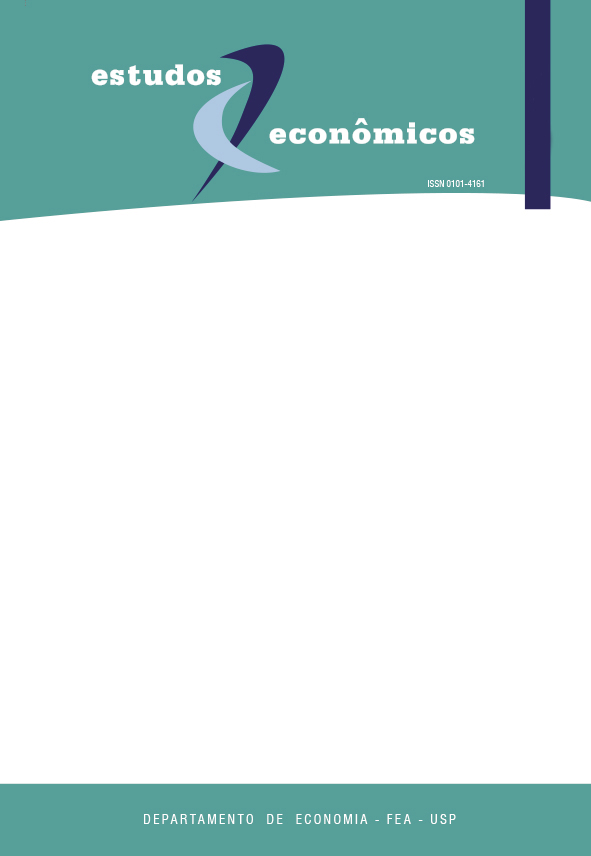A maternidade afeta o engajamento da mulher no mercado de trabalho?: um estudo utilizando o nascimento de gêmeos como um experimento natural
DOI:
https://doi.org/10.1590/S0101-41612006000300004Keywords:
twin birth, woman labor supply, fertilityAbstract
The purpose of this paper is to analyze the impact of an exogenous shock on fertility - using twin first birth - upon womens participation in the labor market. The assumption is that, even though the decision of having children is endogenous, twin birth is a random event. Results obtained suggest that unplanned increase in the number of children has a negative effect only on the probability of womens participation in the labor market. Moreover, this effect seems to be relevant just in the short run.Downloads
References
Angrist, J. D.; Evans, W. N. Children and their parents’ labor supply: evidence from
exogenous variation in family size. The American EconomicReview, v. 88, n. 3, 1998.
Bronars, S. G.; Grogger, J. The economic consequences of unwed motherhood: using
twin births as a natural experiment. The American Economic Review, v. 84, n. 5, 1994.
Gangadharan, J.; Rosenbloom, J. L. The effects of child-bearing on married women’s
labor supply and earnings: using twin births as a natural experiment. NBER Working Paper Series, nº 5647. Cambridge, MA, 1996.
Heckman, J. J. Sample selection bias as a specification error. Econometrica, v. 47, n. 1, 1979.
Killingsworth, M. R.; Heckman, J. J. Female labor supply: a survey. In: Ashenfelter, Orley; Layard, Richard (eds.), Handbook of labor economics, v. 1, 1986.
Rosenzweig, M. R.; Wolpin, K. I. Testing the quantity-quality fertility model: the use of twins as a natural experiment. Econometrica, v. 48, n. 1, 1980a.
Rosenzweig, M. R.; Wolpin, K. I. Life-cycle labor supply and fertility: causal inferences from household models. Journal of Political Economy, v. 88, n. 2, 1980b.
Scorzafave, L. G.; Menezes-Filho, N. A. Participação feminina no mercado de trabalho
brasileiro: evolução e determinantes. Pesquisa e Planejamento Econômico, Rio de Janeiro, v. 31, n. 3, p. 441-478, 2001.
Soares, S.; Izaki, R. S. A participação feminina no mercado de trabalho. Texto para Discussão do IPEA, n. 293. Rio de Janeiro, 2002.
Downloads
Published
Issue
Section
License
Copyright (c) 2006 Elaine Toldo Pazello

This work is licensed under a Creative Commons Attribution-NonCommercial 4.0 International License.
By submitting an article, the author authorizes its publication and attests that it has not been submitted to any other journal. The original article is considered final. Articles selected for publication are proofread for grammatical and orthographic errors. The journal does not pay rights for published articles. The Institute of Economic Research from the School of Economics, Business and Accounting of the University of São Paulo (Instituto de Pesquisas Econômicas da Faculdade de Economia, Administração e Contabilidade da Universidade de São Paulo) owns the journal's copyright.




